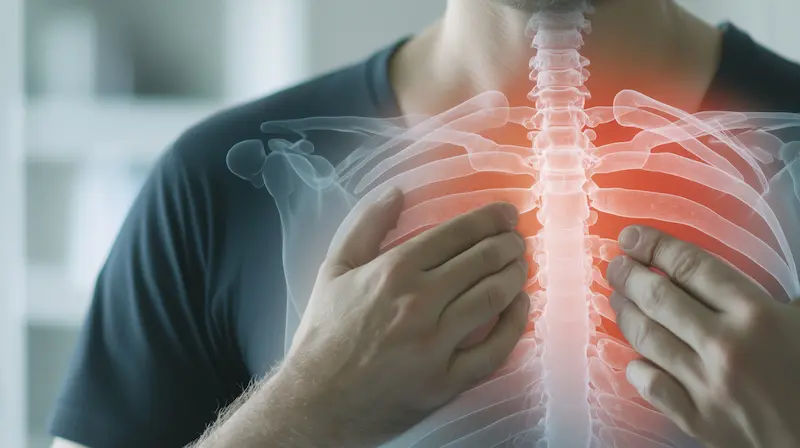Spinocerebellar Ataxia Overview and Information
Know about Spinocerebellar Ataxia (SCA), including its symptoms, causes, and impact on daily life. Learn how SCA affects mobility, speech, and independence, along with tips and treatments for effective management.

Written by Dr. Dhankecha Mayank Dineshbhai
Reviewed by Dr. Siri Nallapu MBBS
Last updated on 13th Jan, 2026

Introduction
Living with a neurological condition like Spinocerebellar Ataxia (SCA) can be challenging, but understanding the condition can help you manage it better. This article provides a simple, friendly guide to SCA: what it is, its symptoms, causes, and ways to cope with it.
What Is Spinocerebellar Ataxia (SCA)?
Spinocerebellar Ataxia (SCA) is a group of inherited neurological disorders that affect the cerebellum, the part of the brain responsible for balance and coordination. Over time, SCA leads to progressive difficulty in movement, speech, and sometimes even vision.
There are many types of SCA (SCA1, SCA2, SCA3, etc.), each caused by different genetic mutations. Symptoms and severity vary depending on the type.
Consult Top Specialists for Personalised Tips
Common Symptoms of SCA
Since SCA affects the cerebellum, most symptoms relate to movement and coordination. These may include:
Poor balance and unsteady walking (ataxia)
Slurred speech (dysarthria)
Difficulty swallowing (dysphagia)
Tremors or shaky movements
Muscle stiffness or weakness
Eye movement problems (nystagmus, double vision)
Symptoms usually worsen slowly over years, and some types may also affect memory and thinking.
What Causes Spinocerebellar Ataxia?
SCA is a genetic disorder, meaning it is passed down in families. Most types follow an autosomal dominant pattern, meaning if one parent has the faulty gene, there’s a 50% chance their child will inherit it.
In some cases, SCA can also occur due to spontaneous genetic mutations (no family history). Genetic testing can help identify the specific type of SCA.
How Does SCA Affect Daily Life?
As SCA progresses, everyday activities like walking, speaking, eating, and writing can become difficult. Some people may need walking aids (canes, walkers, or wheelchairs) over time. Speech therapy and physical therapy can help maintain independence for longer.
Managing Spinocerebellar Ataxia
While there is no cure for SCA yet, treatments and lifestyle changes can help manage symptoms and improve quality of life.
1. Medical Treatments
Physical therapy – Helps improve balance and muscle strength.
Speech therapy – Assists with speech and swallowing difficulties.
Medications – Some drugs can help with tremors, stiffness, or sleep problems.
Occupational therapy – Teaches adaptive techniques for daily tasks.
2. Lifestyle Adjustments
Exercise regularly – Gentle activities like yoga, tai chi, or swimming can help maintain mobility.
Eat a balanced diet – Nutrient-rich foods support muscle and nerve health.
Use assistive devices – Canes, walkers, or wheelchairs can improve safety.
Stay socially active – Emotional support from family and friends is crucial.
3. Genetic Counselling
If you have a family history of SCA, genetic counselling can help assess risks for future generations.
When to See a Doctor?
If you or a loved one experience:
Increasing difficulty in walking or balance
Slurred speech or swallowing issues
Unexplained tremors or muscle stiffness
It’s important to consult a neurologist for proper diagnosis and management.
Final Thoughts
Living with Spinocerebellar Ataxia can be tough, but with the right care and support, many people lead fulfilling lives. Early diagnosis, therapy, and lifestyle changes can make a big difference.
Consult Top neurologist
Consult Top Specialists for Personalised Tips

Dr Debnath Dwaipayan
Neurosurgeon
9 Years • MBBS, MS(Gen. Surgery), DrNB (Neurosurgery)
Delhi
Apollo Hospitals Indraprastha, Delhi

Dr. Avinash Goswami
Neurologist
10 Years • MBBS, DNB (Medicine), Dr.NB (Neurology), MNAMS
Noida
Apollo Hospitals Sector 26, Noida
(50+ Patients)

Dr. K Siva Rama Gandhi
Neurologist
11 Years • MBBS, DNB (Gen. Med.) DNB (Neurology) MBBS.,MD.,DNB
Kakinada
Apollo Hospitals Surya Rao Peta, Kakinada
(75+ Patients)

Dr. Uddalak Chakraborty
Neurologist
8 Years • MBBS, MD(GENL.MED.),DM(NEUROLOGY)
Kolkata
MCR SUPER SPECIALITY POLY CLINIC & PATHOLOGY, Kolkata

Dr. Ganeshgouda Majigoudra
Neurologist
10 Years • MBBS, MD ( GENERAL MEDICINE) DM (NEUROLOGY)
Bengaluru
Apollo Clinic, JP nagar, Bengaluru
Consult Top neurologist

Dr Debnath Dwaipayan
Neurosurgeon
9 Years • MBBS, MS(Gen. Surgery), DrNB (Neurosurgery)
Delhi
Apollo Hospitals Indraprastha, Delhi

Dr. Avinash Goswami
Neurologist
10 Years • MBBS, DNB (Medicine), Dr.NB (Neurology), MNAMS
Noida
Apollo Hospitals Sector 26, Noida
(50+ Patients)

Dr. K Siva Rama Gandhi
Neurologist
11 Years • MBBS, DNB (Gen. Med.) DNB (Neurology) MBBS.,MD.,DNB
Kakinada
Apollo Hospitals Surya Rao Peta, Kakinada
(75+ Patients)

Dr. Uddalak Chakraborty
Neurologist
8 Years • MBBS, MD(GENL.MED.),DM(NEUROLOGY)
Kolkata
MCR SUPER SPECIALITY POLY CLINIC & PATHOLOGY, Kolkata

Dr. Ganeshgouda Majigoudra
Neurologist
10 Years • MBBS, MD ( GENERAL MEDICINE) DM (NEUROLOGY)
Bengaluru
Apollo Clinic, JP nagar, Bengaluru




